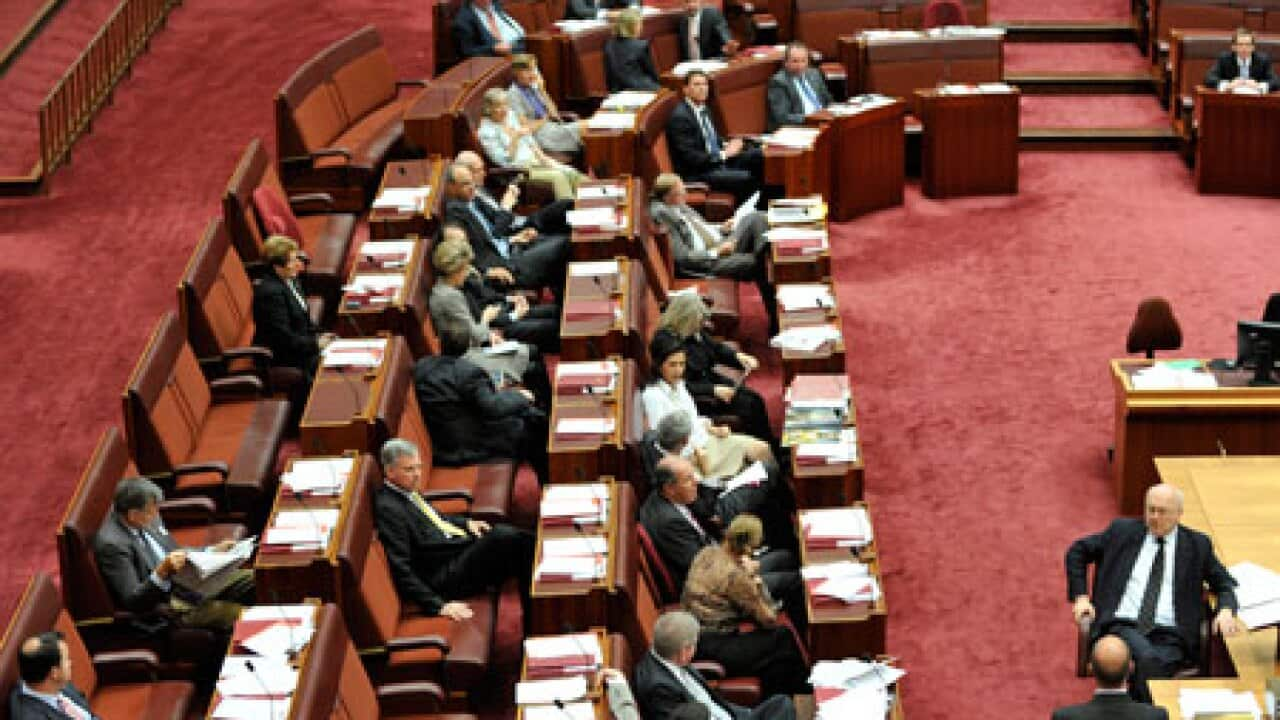The bill, passed by the Senate on Thursday, has provoked a flurry of predictions about a looming constitutional crisis.
But a defiant prime minister is adamant the bill won't make it to the House of Representatives, let alone become law.
"This is all blindingly simple at the end of the day," she told reporters in Canberra.
"It's not constitutional, money bills can only become law in this country if the government agrees to them."
Australian Greens leader Bob Brown says it is up to the parliament to decide what to do with the private bill, proposed by Nationals senator Fiona Nash.
"This is a matter for politicians to settle," he told reporters.
Ms Gillard accused Opposition Leader Tony Abbott of being "grossly irresponsible" for allowing the bill to be brought to parliament without nominating how he would pay for its $300 million impact on the budget.
"It seems very, very easy for Mr Abbott to find ways to spend money," she said.
"What he's not so good at is finding ways to save money and offset that spending."
Senator Brown agreed, saying any private bill that proposed to spend money should nominate the source of funding.
Senator Fiona Nash's bill was passed with the support of South Australian independent Nick Xenophon and Family First's Steve Fielding and was to be considered by the lower house.
Opposition education spokesman Christopher Pyne concedes it's up to the government to decide whether to present the bill to the Governor-General for approval but warns while constitutional opinion is likely to be on the government's side, it could mean a constitutional crisis.
Share

